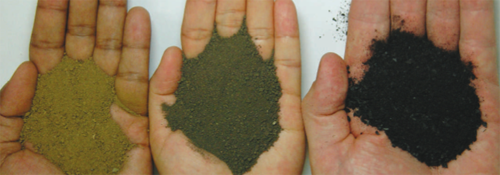Course Introduction, Background & Goals

“What should be our society’s relationship with nature? What are the intellectual causes of the current environmental crisis? These ‘great questions’ of environmental studies are essentially humanistic inquiries into ethics and values.”—Jeanne Kay, “Human Dominion over Nature in the Hebrew Bible”
Summer 2008 section:
You can see from the spring section description that we focused on the topic of “sustainability” — a once alternative approach to environmentalism that is now a mainstream feature in discussions of the environment in general, and climate change in particular. We will continue this line of inquiry in the summer section, but with a hands-on project that we will work on together: the science and possible practical applications of biochar, a soil amendment obtained from the pyrolysis of biomass.
The process of planning, creating, and distributing biochar opens numerous lines of humanistic questions, critical thinking, and engineering problem-solving activities:
- Biochar has a 5,000-year history as terra preta, or Indian black earths (terra preta de indio) in Amazonian South America and thus involves us right away in history, culture, geography, and soil science
- Biochar is a carbon-negative process, which should be of interest to those interested in environmental sustainability
- Biochar involves setting up a kiln of our own design — several possibilites exist — and burning biomass that community gardeners and farmers may want to test against claims that it dramatically increases soil fertility
- Biochar work requires that we work outside occasionally — and it is summer, after all
Some of our course readings ask us to explore food, globalization, poetry, art, evolutionary biology, farm manuals, fire extinguishers, microbial communities, and “nature-deficit disorder”; one of our intellectual tasks, when we’re not outside setting things on fire, will be to ask how the concept and process of biochar might serve as a sustainability dot-connecting mechanism between these interdisciplinary concepts.
We might also ask about the role of philosophy — another humanistic inquiry — in these kinds of endeavors:
Contemplating the heavenly bodies, Thales of Milete, one of the Seven Sages in ancient Greece, fell into a well. The moral of this famous story is straightforward: hobbies can be dangerous and sagacity can be stupid. An understanding that wisdom does not rule out stupidity thus marks the beginning of the history of philosophy. On the contrary, both are hopelessly entwined. The more philosophy delves into the mysteries of the universe, the more it runs the risk of becoming otherworldly, impractical, in a word, stupid. This is exactly why philosophers can only aspire to be wise. In the end, they will find out that true wisdom is not for mortals. — René ten Bos, “The Vitality of Stupidity”

